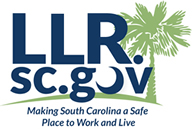Hello REALTORS®,
Sometimes, when attending local government meetings, I hear information that our members need to know. That was the case this week in Anderson.
During the work session before the regular city council meeting, Anderson City Manager David McCuen briefed city council on the city’s recent efforts to step up enforcement of their business license ordinance. Notable was that the city is focusing enforcement on landlords.
Of course, real estate brokers must have a business license wherever they do business, including listing properties for sale or rent. I wrote about that last month. But owning property for rent is also deemed a business activity and subject to a business license in most cities. Anderson updated their ordinance in 2019 to include landlords. But because of COVID and staffing issues, they did not begin enforcing the ordinance until this year.
The city is enforcing in arrears, which means if you should have had a business license, but didn’t, they will assess the business license tax in arears. The lookback period is three years. However, they are not assessing a penalty at this time, and city staff told city council they are working with property owners who need a payment plan.
All property owners who rent their property are required to have a business license and pay the business license tax. However, a property owner with five or fewer residential rental properties or gross rental revenue from residential rentals of $30,000 or less is considered a personal investor and not required to obtain a business license in the City of Anderson.
According to the city, there are 6,000 commercial properties in the city that do not have a business license, and they have only touched 75 of them so far. So, if you or any of your clients own rental property in the City of Anderson, and you don’t have a business license, you are likely to hear from the city soon. You can read my previous report on business licenses here.
Below is an update on a few other issues.
SC General Assembly
An important element of the Realtor agenda is updating the Real Estate Practice Act that governs the licensing and regulation of Realtors. Last week, that legislation advanced out of a House subcommittee. We’ll keep you informed about the bill and fill you in on what it does in a future Watchdog Report.
Anderson County Subdivision Appeals
Sometimes planning commission decisions about subdivisions are appealed. Those appeals are to the Circuit Court. Occasionally, developers submit a new application even though a previous application is being appealed. The county gave second reading to an ordinance that would refuse a new subdivision application if a previous application is still in court. WUAR asked the county to exempt appeals by a third party, like a neighbor or environmental group, which they agreed to.
Pickens County Moratorium and UDSO
The moratorium that has been in effect for more than a year was extended again until April 1 while Pickens County Council continues to work on amendments to the Unified Development Standards Ordinance. The moratorium affects subdivisions of 50 lots or larger. Your association is participating in the development of the ordinance and recently had assistance from a law firm through a grant from SCR.
Support RPAC
RPAC is an important element of your Realtors Association’s advocacy program. I encourage you to support RPAC and we make it easy to do so—we include a voluntary RPAC contribution on your annual dues renewal. Simply pay it and you have support RPAC. If you want to do more, it’s easy.
Michael Dey, Director of Government Affairs



